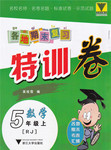题目内容
I've cheated in school when I thought that I could get away with it. I'm not proud of it and I don't usually feel very good about myself afterward, but sometimes it's the only way possible to survive in a pressure cooker. My parents are really set on my getting good grades. They study my report card the same way they examine the newspaper's stock market page. And they make me feel that I've got to live up to their expectations.
But often each teacher acts as if his is the only subject we have. They think nothing of piling on our homework or giving surprise quizzes. Sometimes we have to take two or three tests in different subjects on the same day. I'd like to see a lot of adults I know preparing for that.
When the pressure becomes too high, some kids may resort to(诉诸于) cheating. If you have three or four subjects to study for, you're not going to be able to devote enough time to each subject in order to be well prepared for each class. Besides, it may be the only way left to live up to your parents' expectations and compete with the top students in the class.
Everybody knows that if you cheat, it's important not to get caught. Few things can cause more of chaos. Once, my elder brother got caught cheating on a math final. My parents acted as though he'd committed a federal crime. The assistant principal called them to school, but although the incident caused several conferences, I don't think that anybody ever really understood what my brother was going through. We're just supposed to perform outstandingly as well as always act honestly, but how many adults can actually live up to the standards they set for us?
My father has gotten countless traffic tickets for parking in no parking zones or for not coming to a full stop at stop signs. And you're always hearing about people who don't file their income tax honestly. How about all the corruption in government? Successful adults often accept dishonesty in order to achieve their business goals. Are kids the only ones who are supposed to be perfect?
Most of my friends have cheated on tests in school at one time or another. The kids who never cheat are usually either afraid of getting caught or just don't know how to do it safely. Nobody wants to cheat. But if it's a choice of being honest or of getting a grade, most kids will try for the A. That may sound wrong, but we didn't make the rules, we're just trying to get by.
1. What is the best title of this passage?
A. No one wants to cheat! B. Everyone likes to cheat!
C. No one can survive a cheat! D. Everyone can fight a cheat!
2. The author owes children’s cheat to the following EXCEPT ___________.
A. parents B. teachers C. children D. examinations
3. In the fifth paragraph, the author mainly wants to say __________.
A. his father always cheats in his life
B. kids are always supposed to be perfect
C. all the adults can not live up to the standards they set for children
D. children shouldn’t learn from successful adults
4. Which of the following is true according to this passage?
A. The author thinks it is children’s right to cheat in school.
B. Most of the author’s friends like cheating on tests in school.
C. The author shows a positive attitude towards a surprise quiz in school.
D. The author thinks it wrong to cheat in school.
【小题1】A
【小题2】C
【小题3】C
【小题4】D

 各地期末复习特训卷系列答案
各地期末复习特训卷系列答案 小博士期末闯关100分系列答案
小博士期末闯关100分系列答案I cheated on a unit test in math class this morning during second period with Mr. Burke. Afterward, I was too sick to eat lunch just thinking about it.
I came straight home from school, went to my room, and lay on the floor trying to decide whether it would be better to run away from home now or after supper. Mostly I wished I was dead. It wasn't even an accident that I cheated.
Yesterday Mr. Burke announced there'd be a unit test and anyone who didn't pass would have to come to school on Saturday, most particularly me, since I didn't pass the last unit test. I did plan to study just to prove to him that I'm plenty smart—which I am mostly—except in math.
Anyway, I got my desk ready to study on . Just when I was ready to work, Nicho came into my room with our new rabbit and it jumped on my desk and knocked the flashcards all over the floor. What a mess! Nicho and I finally took the rabbit outside but then Philip came to my room and also Marty from next door and before long it was dinner.
After dinner my father said I could watch a special on television if I'd done all my homework. Of course I said I had. That was the beginning. I felt terrible telling my father a lie about the homework.
It was nine o'clock when I got up to my room and that was too late to study for the unit test so I lay in my bed with the light off and decided what I would do the next day when I was in Mr. Burke's math class not knowing the 8- and 9-times tables. So, you see, the cheating was planned after all.
The next day, I'd go into class as usual, acting like things were going just great. I'd sit down next to Stanley Plummer—he is so smart in math it makes you sick—and from time to time, I'd glance over at his paper to copy the answers.
Lying on the floor of my room, I begin to think that probably I've been bad all along. It just took this math test to clinch it. I'll probably never tell the truth again. I tell my mother I'm sick when she calls me to come down for dinner. She doesn't believe me, but puts me to bed anyhow. I lie there in the early winter darkness wondering what terrible thing I'll be doing next when my father comes in and sits down on my bed.
"What's the matter?" he asks. "I've got a stomachache," I say. Luckily, it's too dark to see his face. "Is that all?" "Yeah." "Mommy says you've been in your room since school." "I was sick there too," I say. "She thinks something happened today and you're upset." That's the thing that really drives me crazy about my mother. She knows things sitting inside my head the same as if I was turned inside out.
"Well," my father says. I can tell he doesn't believe me. "My stomach is feeling sort of upset." I hedge. "Okay," he says and he pats my leg and gets up.
Just as he shuts the door to my room I call out to him in a voice I don't even recognize as my own. "How come?" he calls back not surprised or anything. So I tell him I cheated on this math test. To tell the truth, I'm pretty much surprised at myself. I didn't plan to tell him anything.
He doesn't say anything at first and that just about kills me. I'd be fine if he'd spank me or something. And then he says I'll have to call Mr. Burke. It's not what I had in mind. "Now?" I ask surprised. "Now," he says. He turns on the light and pulls off my covers. "I'm not going to," I say.
But I do it. I call Mr. Burke, and I tell him exactly what happened, even that I decided to cheat the night before the test. He says I'll come on Saturday to take another test, which is okay with me, and I thank him a whole lot for being understanding and all.
"Today I thought I was turning into a criminal," I tell my father when he turns out my light. Sometimes my father kisses me good night and sometimes he doesn't. I never know. But tonight he does.
【小题1】After the author cheated on the math test, he felt ____________.
| A.frightened because he might be caught |
| B.excited that he had succeeded |
| C.pleased that nobody knew it |
| D.unhappy because he had done something wrong |
| A.he had planned not to study before the test |
| B.he decided to cheat when he knew there was going to be a test |
| C.he decided to cheat after he had wasted the whole evening |
| D.he had planned to cheat with Plummer before the test |
| A.She really knows what he is thinking |
| B.she was very strict with him |
| C.she doesn’t believe him |
| D.she asks him to come down for dinner |
| A.scolded the author severely |
| B.didn’t say anything and left |
| C.called Mr. Burke immediately |
| D.let the author make a call to Mr. Burke |
| A.he had done something unusual |
| B.he promised to study math harder |
| C.he was willing to take a make-up test |
| D.he realized his mistake and had the courage to admit it |